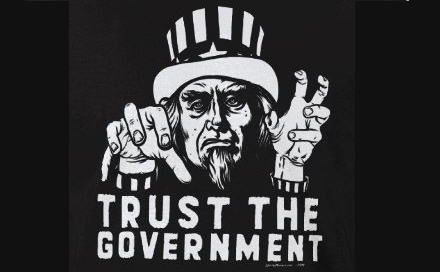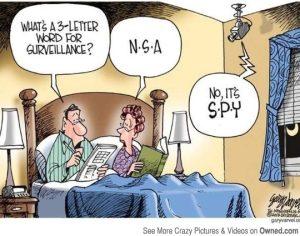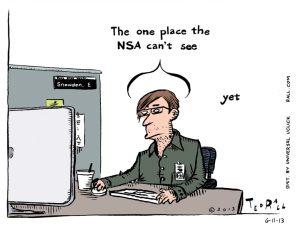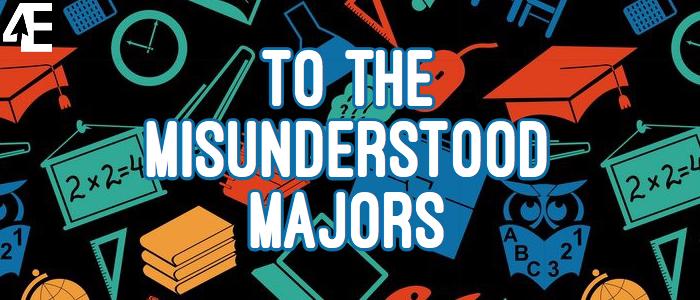We realize that national and international political events play a crucial role in our education and dialogue here at Georgetown. We also realize how terrifying it can be when someone talks about a current political issue and you have no idea what that person is saying. That’s where PoliSci for the Average Guy comes in.
PoliSci for the Average Guy is a recurring post that keeps you easily and entertainingly informed of the political issues that have most recently been making headlines. With help from PoliSci, you’ll be a little less stressed and a little more informed about today’s serious political topics and will be able to dive into the discussion yourself.
Dear Diary,
Are my secrets safe with you? Because Mom and Dad keep saying that their secrets aren’t safe with the government because of the NSA … and I don’t know where to turn. What’s going on?
Love,
Just an Average Guy
Dear Average Guy,
I’m here to help. Here’s why your parents are a little bit skeptical about trusting the government with their information:
Who: His name is Edward Joseph Snowden, an American computer specialist and former CIA employee, but he was most recently employed as an NSA contractor. Snowden, while employed as an NSA contractor, disclosed 20,000 documents of classified government information, including details of U.S., Israeli and British mass surveillance programs, to the press.
In short, Snowden revealed our collective diary and exposed every nook and cranny of American intelligence capabilities.
Consequently, Snowden has divided the general public over the matter of surveillance, and people have started to ask the question: Is it justified in the name of national security or does it violate our Fourth Amendment right to privacy?
Currently, Snowden is living in Russia under temporary political asylum — which means he’s allowed to travel, work and live in Russia. However, the U.S. has issued Snowden an international arrest warrant on account of espionage charges.
Therefore, Snowden is considered a “fugitive” by the American authorities who have also charged him with obtaining and withholding information without permission. So, while Snowden sips on his White Russian as an international outlaw, the United States and Britain have gone into a damage control frenzy.
What: The National Security Agency (NSA), part of the Department of Defense, is responsible for gathering intelligence by intercepting signals and/or surveying communications between people in order to protect the American people. In other words, if you’re texting a terrorist, you better say “TTYL” because the NSA is about to text you “WTF.”
Moreover, the NSA is responsible for the protection of all U.S. government communications and information systems, which requires a system of “mass surveillance” in the U.S. Yet, mass surveillance is a double edge sword: why can the government read our diaries but we can’t read theirs? (And just to clarify, by diaries, I mean vast packets of metadata and cell phone records.)
Even Secretary of State John Kerry, in the wake of the information leaks, has admitted that the NSA has gone “too far” in some of its surveillance activities. Yet, on the other hand, Director of National Intelligence James Clapper condemned Snowden’s actions for creating “huge, grave damage” to U.S. intelligence capabilities.
In the eyes of Clapper, it’s as if your diary fell into the hands of your crush. What are you supposed to do now knowing that you know that he/she knows you’ve been watching them from across the classroom? It’s a stagnating position, especially because it’s not like the U.S. government can just decide to stop its programs that are already underway.
What was leaked: Snowden revealed NSA documents to The Guardian and The Washington Post regarding top-secret government surveillance programs at the Hong Kong Hotel in June of this year (Hong Kong is known for its commitment to political dissent and free speech). He leaked information about two different NSA operations called “PRISM,” under which the NSA collected phone call records to link to terrorists abroad and surveyed online communications both to and from foreign targets.
The NSA has surveyed online communications via Apple, Google, Microsoft, Facebook and others without court orders. USA Today characterized Snowden’s leak as “one of the most sensational leaks of classified material in U.S. history.” Which poses the question, how much did the government have to hide? (We still don’t really know.) But moreover, how did our friend/enemy/frenemy Ed do all this?
How: Snowden claims he was given access to the information as both an NSA contractor and as a system administrator; however, no one is sure how he was able to gain access and no one publicly admits to granting Snowden access.
According to NBC News, “It’s 2013, and the NSA is stuck in 2003 technology,” making it seem as if hacking classified files is as simple as logging onto a friend’s Facebook account and setting their status to “I just farted” in order to embarrass them.
In response, the government immediately stopped the bleeding and underwent (and continues to do) a thorough damage assessment … which has proven to be meticulous, long and ultimately impossible because the government has no real inkling of what Snowden did and how he did it. Therefore, the next step is to create new preventative measures.
When: The initial leak took place this past summer; however, the governments involved are still dealing with the repercussions. Potential national security threats and domestic pushback for violating “the right to privacy.”
Why: Snowden’s sole motive for leaking the documents was “to inform the public as to that which is done in their name and that which is done against them.” Snowden, as a self-proclaimed “public servant,” believes he did nothing wrong because he doesn’t “want to live in a society that does these sort of things,” referring to widespread surveillance on citizens.
So, now what? The government is still in the process of running internal evaluations of possible damages to national security. As Speaker of the House John Boehner said, “Americans are at risk; it shows our adversaries what our capabilities are, and it’s a giant violation of the law.”
Likewise, the leaks have drawn international discontent toward the United States, namely from Europe and Asia. For instance, the European Union has implemented data protection laws and narrowed mass surveillance so that the United State has access to a more limited scope of data.
And this, if you liken this to “Mean Girls,” is exactly why the “burn book” should never have been copied and distributed: Everyone turns against you. Now, it’s time to decide for yourself … Raise your hand if personally victimized by the NSA.
I wish I could tell you more, Average Guy, but as you can see, things with Edward Snowden and the NSA are continuously unfolding. If you aren’t talking to terrorists (which you shouldn’t be doing anyway), I don’t think you have much to worry about. So, in the meantime, take a breather and wait until our next installment of PoliSci for the Average Guy.














